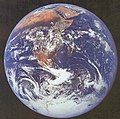Chem321:Discussion 4
WORLD (Chemistry 321) |
| MAIN PAGE |
|---|
| Syllabus — Schedule |
| Welcome page Contact Dr. Walker |
| This week |
| Today's tasks — (tomorrow) |
| Course units 1 - 2 - 3 - 4 - 5 - 6 - 7 8 - 9 - 10 - 11 - 12 - 13 - 14 |
| Moodle site |
|
|
| Course content |
| Assignments Paper - Acme - 1 - 2 - 3 - 4 - 5 |
| Practice problems |
| Discussions |
|
|
| General wiki help |
| Basic editing Create an account Protocols Tutorial Demo, for practice |
This discussion is based on discussing two questions, and it is set to take place on the wiki, over the next few days (until midnight on Monday, 16th July). We will leave comments on the page below, in response to (and under) the questions posted or the related responses. Be sure to start your text with a *, and sign your responses with four tilde marks at the end.
Laws of conservation of matter and energy
Classical laws of chemistry and thermodynamics tell us that neither mass and energy cannot be destroyed; both are conserved during any physical or chemical process. (Strictly speaking we should use a combination of mass-energy when talking about nuclear reactions, but these are rare on Earth.) What can we learn from the conservation of mass and conservation of energy when considering global resources of mass and energy?
Limitations
Science is clearly valuable when studying the environment. What do you perceive as the limitations of science in this context?
Wonder gadget
If you had $50 billion to spend on developing some new technology, what would you choose, and how would you spend the money?
